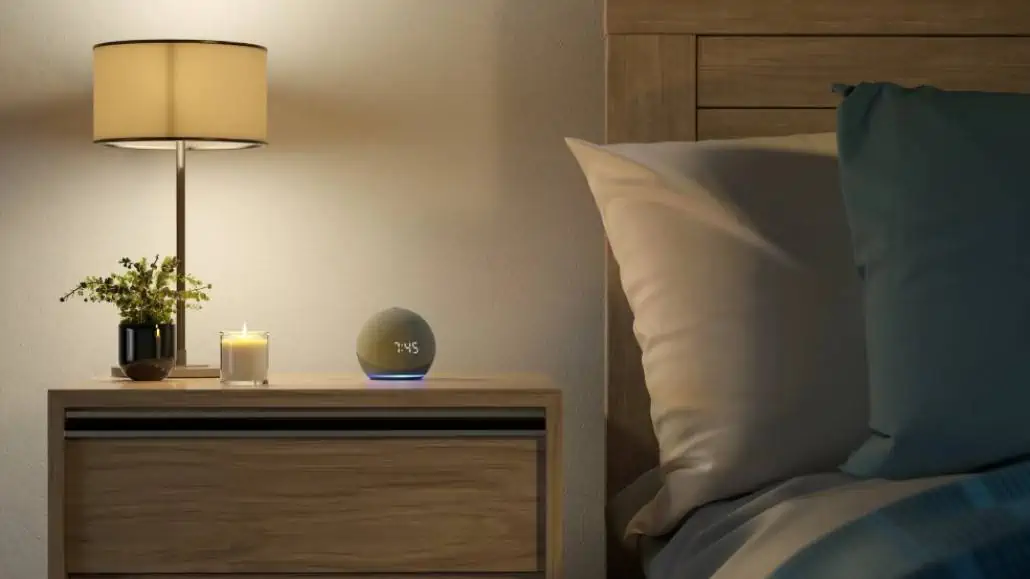
Smart speakers can combat loneliness according to a recent report by Ofcom, the UK’s communications regulator. Smart Speaker Research conducted in depth interviews with 100 smart speaker owners and 15 non-owners who tested one, to find out how people use and feel about them. By far the largest use was to listen to music via a streaming service like Spotify, Apple Music or Deezer closely followed by getting weather forecasts, using the speaker to act as an alarm and personal schedule reminder, listening to live radio and getting news reports.
One surprising finding was that smart speakers are playing an important role in combatting loneliness for people who live on their own. Some described their speaker as being like a companion, particularly if they lived alone. They felt it was good for combatting loneliness and liked the fact they could talk to their speakers. “Living alone it’s like having a friend in the house” said a man aged 55-64 in the West Midlands.
Some disabled people said a smart speaker had had a significant impact on their lives, giving them greater independence and helping them manage, and even improve their conditions and abilities.
“It really is the difference between maintaining independence around the house… my carers don’t have to keep getting up every five minutes. Like this evening, I was able to just ask it to put these lights on. Years ago, before I had that facility… I would have had to ask people to do things manually.”
Ofcom found that smart speaker ownership nearly doubled during the pandemic, increasing from 22% of households in 2020 to 39% earlier this year.
Key findings from Smart Speaker Research
- Latest industry figures show that 13% of all radio listening hours are now via smart speakers. People generally felt they listened to the radio more than they had done before, and said their smart speaker allowed them to listen to a wider range of stations than previously.
- People who don’t have a smart speaker either didn’t see the point or saw it as a luxury rather than a necessity. However, a few were concerned about being listened to, although this was more of a secondary concern rather than a main barrier. The feeling of being listened to was further exacerbated for some by their speaker sometimes talking even when the ‘wake word’ had not been used. Some people expressed concerns about the potential for criminals to use smart speakers to steal data and hack their systems, potentially to steal identities or bank details. A few mentioned that they had heard of other technology – such as baby monitors and routers – being hacked. However, most used their speakers with little concern and did not think about risks on a day-to-day basis.
- A large proportion of participants anthropomorphise their smart speakers, referring to them as ‘he’ or ‘she’. Some people also ask questions in a conversational manner, say ‘please’ and ‘thank you’, and even read ‘intent’ or ‘personality’ in responses and mistakes.
- Not everyone felt affectionate towards their smart speaker, seeing it more of a servant than a helpful friend. “It’s a bit of machinery. I wouldn’t thank my hacksaw for going through a bit of wood. I wouldn’t thank a screwdriver for screwing it in.”
- Most interviewees did get frustrated because their speaker did not always respond correctly to commands, either ignoring them or doing the ‘wrong’ thing. This was particularly felt to be the case by people with strong regional accents.
- 27% of smart speaker owners get their news from their device. Most of the research participants saw their smart speaker news as an addition – rather than alternative – to more in-depth news coverage, using it for instant headlines, but returning to TV, print or online news for more detail if needed. There was a mix of views as to the extent that people liked their speakers to personalise or tailor their content. Some appreciated the improved user experience they felt this gave them, while others found it unsettling and disliked relinquishing too much control. “It is important to be able to tailor the news provider to your particular preferences and political leanings. That’s a personal and democratic choice that I wouldn’t like to have made for me.”
The full Smart Speaker Research report (60pp) is freely available and can be downloaded here.




